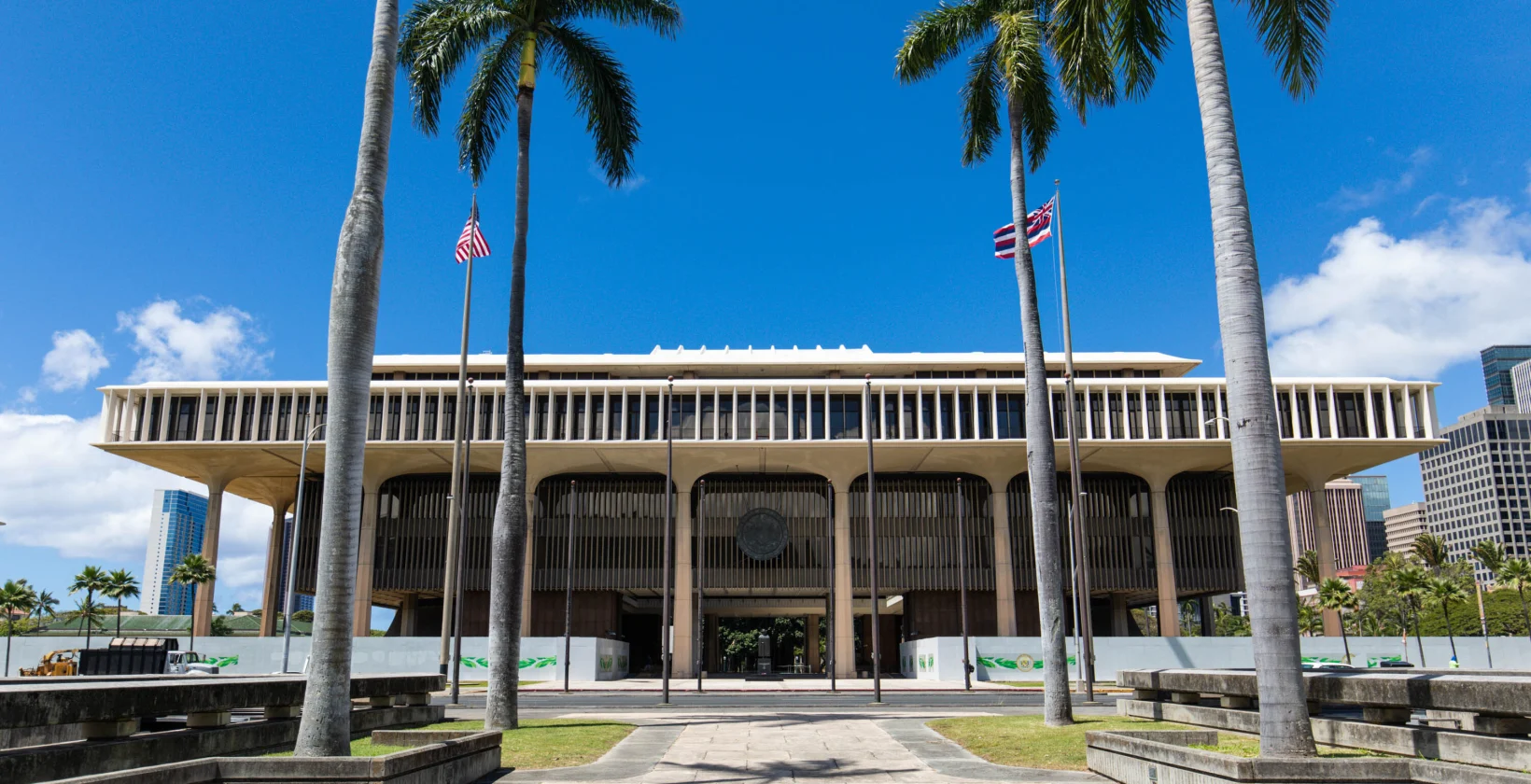Hawaii is emerging as a global leader in solving the greatest challenge of our time: climate change. And rightfully so: while our state is threatened with the worst impacts of the climate crisis—from sea level rise to stronger storms and flooding—we have the best opportunity on Earth to build our economy around clean energy. Thanks to our leadership, Hawaii has adopted a suite of critical clean energy targets, including 100% renewable electricity, carbon neutrality, and achieving the Paris Climate Agreement’s objective of limiting global warming to 1.5 degrees Celsius.
This leadership is reflected in other states following Hawaii’s lead. Within the last 18 months, legislators in California, New Mexico, Washington, and Guam have set goals to achieve 100% clean energy by 2045—the same target date Hawaii set five years ago. Puerto Rico and Nevada have set 100% goals by 2050, and New York is aiming to be 100% carbon-free by 2040. But setting targets isn’t enough. We need new policy tools to achieve the important targets we have committed to.
Blue Planet Foundation, a local public charity, has been working for over a decade in Hawaii to clear the path for 100% clean energy for all. In collaboration with other community stakeholders, we have developed a portfolio of policy solutions to accelerate our transition to a carbon-free economy. These measures seek to significantly reduce our greenhouse gas emissions while ensuring that everyone benefits from the transformation to clean energy.
Extension of electric vehicle (EV) incentives (HB 1052, SB 2657) – While Hawaii has been making strides on renewable electricity, we are falling short on decarbonizing our ground transportation sector. Greenhouse gas emissions from transportation are increasing. Last year, we sold 6% more gasoline than the previous year. Although we now have roughly 10,000 EVs on Hawaii’s roads, they still only make up about 1% of all registered vehicles in the state. The outlook for increased adoption could get gloomier: Hawaii’s only state incentives for EVs are expiring in June. This policy would extend, but modify, the parking and HOV access benefits afforded to EV drivers to address government concerns without eliminating the only state incentives currently on the books.
Feebate for EVs (HB 2493, SB 3022) – Increasing the adoption of EVs also means expanding access to affordable models. Blue Planet is advocating to establish a “feebate” program to lower the upfront cost of EVs under $40,000. A fee would be collected on our most fuel-inefficient vehicles—with an exemption for certain vehicles used for commercial and/or agricultural purposes—and placed in a “clean vehicle fund.” That fund would be used to pay for rebates for affordable EV models.
100% means 100% (HB 1864, SB 2317) – To ensure that our 100% renewable portfolio standard (RPS) actually means “100%,” we need to make an easy correction to the way the RPS is calculated. Currently, the state’s RPS calculation can provide utilities with “double credit” for some distributed energy sources, such as rooftop solar. This leads to the outcome that the calculated RPS can be greater than the actual percentage of renewable energy on our electric grids. This policy would revise the accounting calculation to address this potential outcome. This measure would also accelerate the interim targets on the way to 100%. At least one recent study shows that accelerating the interim targets could be more cost-effective for Hawaii ratepayers than maintaining the trajectory for renewables under the current RPS law.
Building efficiency benchmarking (HB 1520, SB 1337) – Building tenants are told what a unit will cost per month to rent, but they typically have no idea what the monthly utility bill will cost. We need policies—similar to other jurisdictions—that require that this data be available for prospective tenants. Building benchmarking should be required such that commercial buildings must disclose how the building ranks for energy use against similar buildings. It’s like a vehicle’s MPG sticker in the windshield—but for commercial buildings.
Phasing out fossil fuel vehicles (HB, 2699, HB 2593, SB 2438) – If we are serious about achieving our clean transportation and carbon goals, we need to set clear policies on what types of vehicles are allowable in Hawaii. Fossil fuel-powered internal combustion engines are simply incompatible with a stable climate. We need to provide customers, auto dealers, and planners direction on what is coming so that they can plan for a smooth transition to clean transportation. We are also advocating to revive our push for Hawaii to set a goal for 100% renewable ground transportation.
Coal ban (HB 2657, SB 2366) – This measure would officially put an expiration date on coal power in Hawaii—the dirtiest and most polluting of all fossil fuels. The bill would ensure that coal doesn’t have a place in Hawaii’s clean energy future and that Hawaii is truly “coal free” by 2023 (the last coal plant on Oahu is slated to be retired at the end of 2022). Although some might view this measure as merely symbolic, by putting a stake in the ground on coal, Hawaii can demonstrate national and global leadership on clean energy and climate action.
